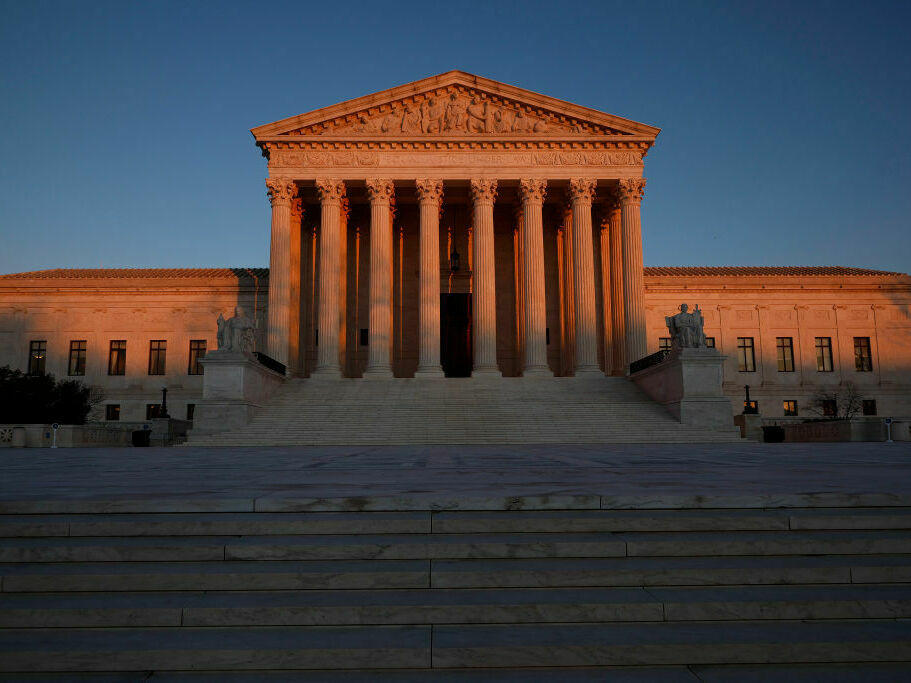Section Branding
Header Content
Supreme Court takes up Colorado's decision to kick Trump off its primary ballot
Primary Content
Updated January 5, 2024 at 6:59 PM ET
The Supreme Court has agreed to consider whether former President Donald Trump should be disqualified from the ballot in Colorado, thrusting the justices into the heart of the 2024 presidential campaign.
The court will hear oral arguments in the case on Thursday, Feb. 8.
Both Trump and the Colorado voters who sued to bar him had asked the high court to weigh in and determine whether a part of the 14th Amendment designed to keep Confederates out of government after the Civil War should apply to the former president — and leading contender for the GOP nomination — later this year.
The question is an urgent one, since states are preparing to print ballots for absentee voters, military service members and Americans overseas in the coming weeks. Voters in Colorado mostly vote by mail and preparations before the contest on March 5 are well underway there. Colorado officials said Trump would remain on the ballot during the course of an appeal.
Last month, the Colorado Supreme Court set off the equivalent of a legal earthquake when it kicked Trump off the Republican primary ballot. The court majority concluded that he violated his oath of office and that his actions around the storming of the U.S. Capitol three years ago amounted to participating in an "insurrection."
Trump's attorneys urged the U.S. Supreme Court to reverse that ruling quickly, arguing that if it is allowed to stand, it would "mark the first time in the history of the United States that the judiciary has prevented voters from casting ballots for the leading major-party presidential candidate."
In a statement released Friday, the Trump campaign said it welcomed a "fair hearing" by the nation's highest court adding, "we are confident that the fair-minded Supreme Court will unanimously affirm the civil rights of President Trump, and the voting rights of all Americans."
However the justices rule, it could have implications nationwide. Besides Colorado, the secretary of state in Maine recently disqualified Trump from that state's ballot based on similar reasoning. Michigan and California reached different conclusions. Legal challenges are pending in more than a dozen other states.
Trump's attorneys told the court only Congress can decide who is eligible to serve as president. They said the actions by a court in Colorado and a state official in Maine deprived voters of their right to vote for a candidate of their choice.
Lawyers for Colorado voters said in their own court filing that "the Court should nevertheless decide the merits on an accelerated basis to reduce voter confusion and ensure that primary voters cast their vote knowing whether Trump is disqualified from the Presidency." Ballots there must be returned by March 5, Super Tuesday, to be counted.
Colorado's own Supreme Court took pains to acknowledge the consequences of its action.
"We do not reach these conclusions lightly," the court majority wrote. "We are mindful of the magnitude and weight of the questions now before us. We are likewise mindful of our solemn duty to apply the law, without fear or favor, and without being swayed by public reaction to the decisions that the law mandates we reach."
Copyright 2024 NPR. To see more, visit https://www.npr.org.

